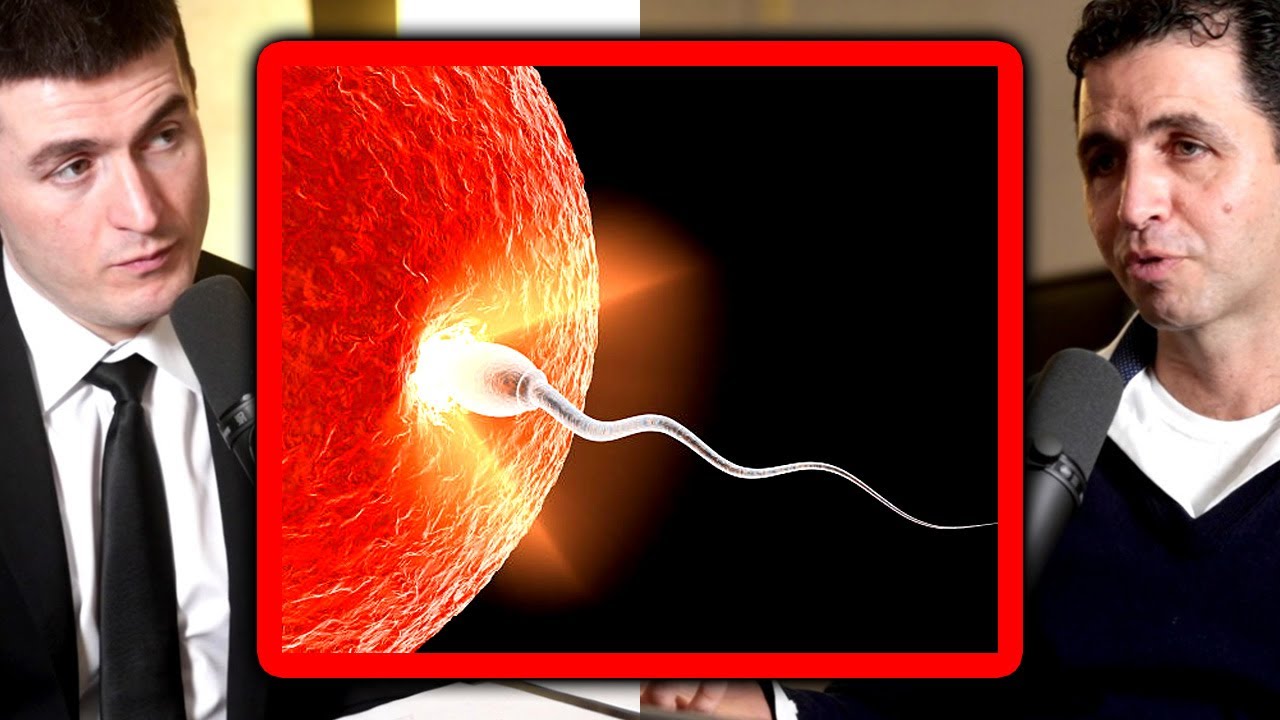Lex Fridman On Sperm Competition: Who Wins?
Unleash Your Creative Genius with MuseMind: Your AI-Powered Content Creation Copilot. Try now! 🚀
Evolution, in all its glory, is a fascinating concept. It is the result of countless generations of trial and error, each one contributing to the development and survival of a species. When we think about the process of evolution, it's easy to get lost in the sheer number of possibilities and variations that occur. Take, for example, the case of sperm cells. There are hundreds of thousands of them, all vying for the chance to fertilize an egg. Isn't it mind-boggling to consider the immense competition and the ultimate success of just one sperm?
Some might argue that the selection of the winning sperm is entirely random or even ridiculous to contemplate. But in reality, it is far from arbitrary. Evolutionarily speaking, humans are slow-evolving creatures. Each generation takes a significant amount of time to undergo natural selection and adapt to its environment. This drawn-out process is not ideal for efficient selection and adaptation.
To truly understand the power of selection, we need processes that operate on a smaller, tighter loop. Our immune system provides an excellent example of this concept. Unlike the slow-paced evolution of humans, our immune system evolves rapidly. Within our immune cells, a remarkable process called VDJ recombination occurs as they divide. This process leads to the creation of an extraordinary diversity of antibodies and antigens, which help us combat the constant changes in our environment.
These antibodies recognize various antigens from the world around us, and in turn, trigger the multiplication of cells that recognize non-self agents. While viruses may evolve millions of times faster than we do, our immune system still manages to keep up. It continuously evolves at a rapid pace to face the environmental challenges effectively.
The Role of Sperm in Ensuring Genetic Integrity
Consider the sperm cell, which expresses an extensive range of proteins, possibly more than any other cell in the body. It is believed that this abundance of proteins serves as a way to assess the sperm's overall integrity. By expressing these genes at the sperm level, potential mutations or deformities can be detected early on.
Imagine the consequences if we waited until a human being developed a fully-functioning liver or started consuming solid food before discovering these mutations. We would be faced with numerous failed pregnancies and a higher incidence of late-onset psychiatric disorders. However, by expressing these genes at the sperm level, we have the ability, at least on the male side, to exclude some of these detrimental mutations.
On the female side, a similar purging process likely occurs as the egg develops. Eggs that carry harmful mutations or lack beneficial ones may be eliminated, increasing the chances of successful pregnancies and optimizing genetic well-being. This nested loop of evolutionary processes allows for tighter selection and better outcomes.
Expanding the Horizon of Evolution
Now, let's consider the next stage of evolution: our ability to design systems that complement our biology or even eradicate diseases. Engineering mutations through rational design alone might prove to be highly inefficient. However, by incorporating an evolutionary loop into the process, we can potentially revolutionize the way we approach these challenges.
Imagine growing neurons on a dish and exploring evolutionary space. By shaping a single protein to better adapt to specific functions, such as recognizing light or interacting with other neurons, we can create a smaller evolutionary loop that runs thousands of times faster than the natural evolution of humans would. In essence, we are compressing time and maximizing the potential for discovery and innovation.
In this context, it becomes crucial to think about evolvability as a set of nested structures that allow for testing a multitude of combinations in a more efficient and controlled setting. By embracing this concept, we can accelerate advancements in various fields, from medicine to technology.
Embracing the Journey of Life
So, in the grand scheme of things, what does it mean for us to be the winning sperm? It's a remarkable thought that each one of us, at least once, was the first among many. Perhaps it's a celebration of the incredible journey of life itself, where chance, selection, and evolution intersect to create an individual with unique possibilities and potential.
As the French song that my wife often plays reminds me, "In life, we were all the first, just for once." So, even though we can't remember it, we can revel in the fact that we were once the champions of the race, the winners of the infinite possibilities that come with being alive.

Related Recaps
- NUNCA JAMAS HABRÁ OTRO JUEGO COMO DRAGÓN BALL BUDOKAI TENKAICHI 3 | BUDOKAI TENKAICHI 4 | ANZU361
- CAPTAIN FIDDLES SONG - Ooga Booga - GARTEN OF BANBAN
- La Batalla Legendaria 🤖 E20 🤖 Super Megaforce ⚡ Power Rangers Para Niños
- Twitch Livestream | Farming Simulator 22 | Hills View Farm by Stevie. | 03/14/2023 - Part 2
- Hơn 1/4 nhân loại thiếu nước sạch - Tin thế giới - VNEWS